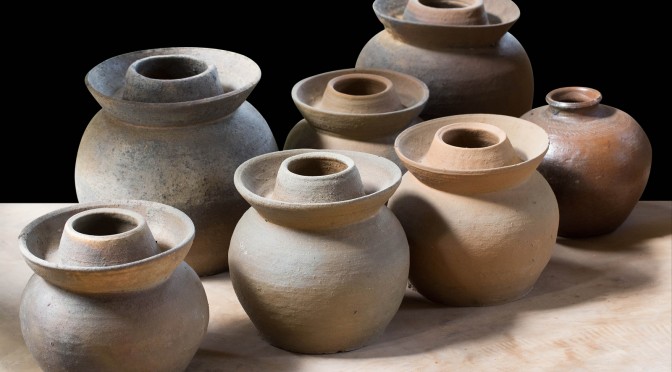A weekly round up of articles about employment, the labour market, skills training and workforce development. Read below or download the news for the week ending 3rd September.
This week in the Bangladesh English Press…
…jobs are being lost in traditional handicrafts but created in established and new manufacturing sectors. We get to the bottom of the controversies around Bangladesh, the garments industry and the General System of Preferences. But migrant labour continues to be a complicated issue with often surprising stories.
Employment’s Ebb and Flow
Two weeks ago we highlighted a news article on the decline in traditional sari weaving. This week we see that other handicraft industries are also under threat. The Daily Star writes on the potters of Bogra; The Independent on the traditional silk industry in Rajshahi. The Financial Express describes the vulnerability of the blacksmiths of Pabna.
But as jobs are lost in some traditional sectors, innovations and global demand are offering up work in other areas. From shoemaking to shipbuilding business is booming.
Riding High
Thanks to the industry insight of its owner Leatherex now employs 1200 people in it leather products business writes The Daily Star. The Financial Express reports new orders for Navy-managed Khulna Shipyard. And The Independent tells us bicycles are now a significant export. One company alone employs 7000 people producing bikes for both international and domestic markets.
In agriculture jute farmers are doing well and commanding higher prices this year says The Independent and The Daily Star. But The Daily Star warns that global demand for jute products is still weak.
From dragon fruit in Jhenidah to tomatoes in Rajshahi, farmers are succeeding with new crops. Dairy farmers may also prosper with access to loans at better rates.
General System of Preferences: Bottoming it out
We have discussed the USA’s suspension of Bangladesh from the General System of Preferences before.
Everyone seems to have a different opinion regarding the suspension and the importance of the traded agreement.
Are we finally getting to get to the bottom of the issue this week?
The Minister for Industries expressed his frustration with the suspension from the General System of Preferences. But The Financial Express also noted the Minister was optimistic about future growth in the garments sector.
This optimism is widely shared with the Daily Star publishing findings from a recent McKinsey survey of top global retailers. Buyers believe Bangladesh will be the number one source of ready-made garments over the next five years.
A Question of Image and Confidence
The Financial Express previously reported that inclusion in the General System of Preferences had very little financial advantage. But this week the same paper concluded that exclusion is a potential disadvantage. The paper speculates other trading partners might follow the USA and exclude Bangladesh from similar trade agreements.
At a seminar on the garments sector held in Dhaka, participants reached similar conclusions about the General System of Preferences. It is more about image and business confidence that immediate financial benefits.
The Travails and Triumphs of Migrant Work
The Financial Express says there are seven million Bangladeshis working overseas. But suggests future migrants could benefit from vocational training to ready them for skilled jobs.
Despite large number of Bangladeshis going to the Middle East for work, The Daily Star notes the odd situation in Saudi Arabia where Bangladeshi workers are being priced out of the market.
The Daily Star reported on a conference held in Kathmandu. Speakers discussed the problems of migrant workers from South Asia, and proposed policies that might benefit migrants.
Finally, on a positive note, we hear about progress on Qatar’s Wage Protection Scheme, which comes into force later this year.
